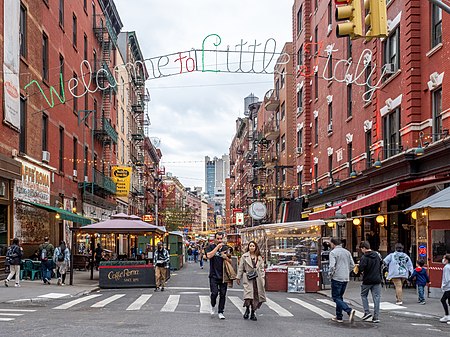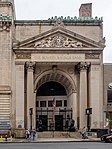Little Italy, Manhattan
Ethnic enclaves in New York (state)Historic districts in the United StatesHistoric districts on the National Register of Historic Places in ManhattanItalian-American culture in New York CityItalian-American history ... and 6 more
Little Italys in New York (state)Little Italys in the United StatesLower ManhattanNeighborhoods in ManhattanRestaurant districts and streets in the United StatesSicilian-American culture

Little Italy (also Italian: Piccola Italia) is a neighborhood in Lower Manhattan in New York City, once known for its large Italian population. It is bounded on the west by Tribeca and Soho, on the south by Chinatown, on the east by the Bowery and Lower East Side, and on the north by Nolita.
Excerpt from the Wikipedia article Little Italy, Manhattan (License: CC BY-SA 3.0, Authors, Images).Little Italy, Manhattan
Grand Street, New York Manhattan
Geographical coordinates (GPS) Address Nearby Places Show on map
Geographical coordinates (GPS)
| Latitude | Longitude |
|---|---|
| N 40.719 ° | E -73.997 ° |
Address
Grand Street 197
10013 New York, Manhattan
New York, United States
Open on Google Maps










